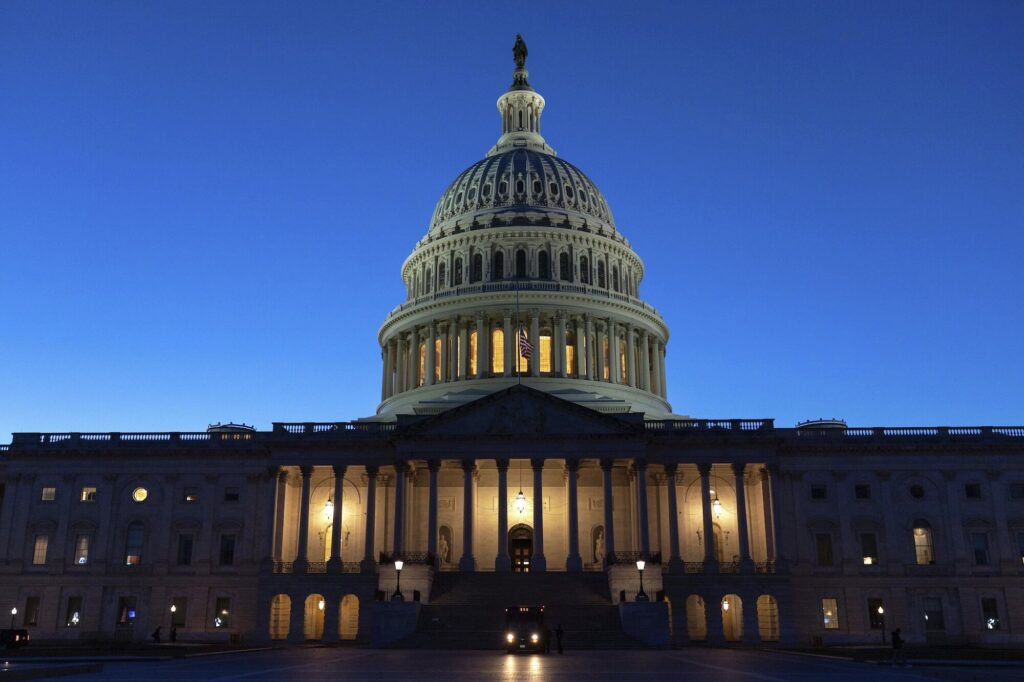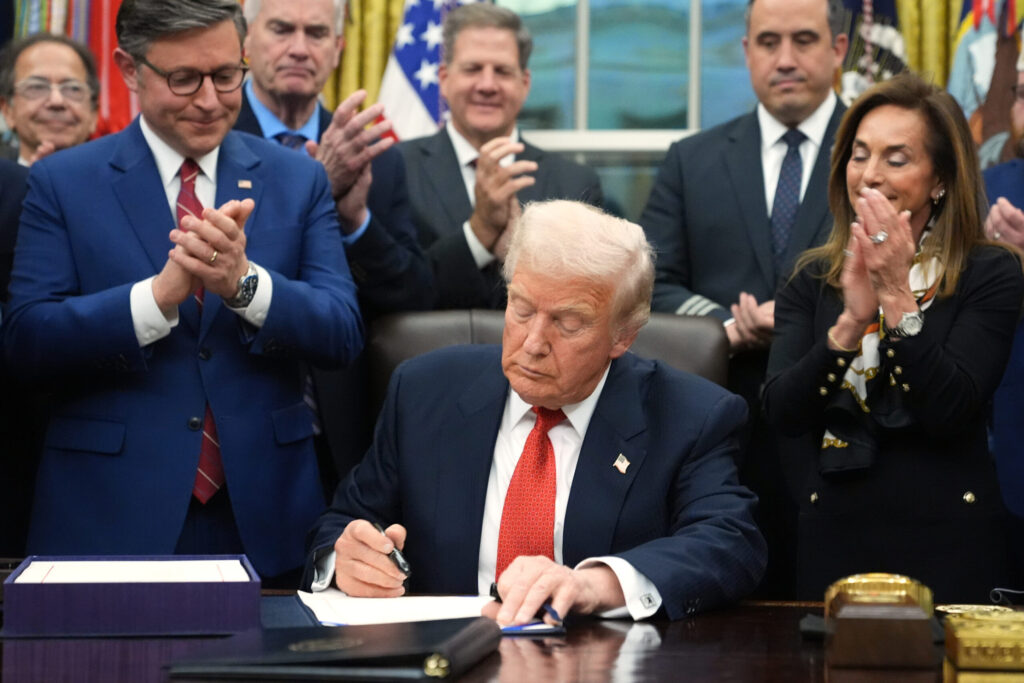A history lesson: Joe McCarthy and communism in America
“I have here in my hand a list of names,” Joe McCarthy is famously quoted as saying in the 1950s.
The senator from Wisconsin is well storied in the history books as the public face symbolizing fears of communist subversion in the U.S. during the Cold War and leading charges that Soviet espionage was widespread in the highest ranks of the government. McCarthy’s anti-communist crusades and his tactics resulted in him becoming a political pariah – his colleagues in Congress censuring him in 1953.
But while conceding McCarthy was unapologetically a demagogue, his tactics deplorable, his accusations frequently off the mark, Harvey Klehr, an expert on the American Communist movement and professor of politics and history at Emory University, argues Russian archives prove the senator was at least partially right about the scope of communist subversion.
“Just because Joe McCarthy was objectionable should not blind us to some things that Sen. McCarthy got right,” Klehr said during a talk Nov. 2 on the University of Colorado at Colorado Springs campus. “There was a very significant issue of national security presented by communist spying and subversion in the United States.”
“No government could afford to turn a blind eye to spying as extensive as that directed against the United States by the Soviet Union,” Klehr continued.
‘Reds under the bed’
In the mid-1990s, Klehr, an author of several books on the communist movement in America, said he was the first American and one of the first westerners to forage through a new archive in Russia called the Communist International, which housed millions of records detailing communism around the world, including in America.
“This new primary source material was massive,” Klehr said, describing the about 13-story building containing the documents.
The records exposed the deep ties between the American Communist Party and Soviet intelligence agencies, Klehr said.
“There was a foreign organization telling a supposedly American political party who its leaders should be, what its policies should be, even the slogans it should use,” Klehr said.
The Soviets were generously funding the American Communist Party, providing subsidies totaling millions of dollars a year. Archival papers detailed a letter from a Soviet Communist Party leader urging Moscow to increase subsidies because of communism’s increasing influence in America, Klehr explained. “The American Communist Party was serving as the agent of a foreign power.”
Klehr said decoded communications exposed Soviet spies deep within the American government like Harry Dexter White, a senior U.S. Treasury Department official during the 1930s and the architect of the International Monetary Fund and World Bank. The successfully unencrypted cables, known as the Venona Project, confirmed allegations against convicted Soviet spies Julius and Ethel Rosenberg, who were later executed for conspiracy to commit espionage, and Alger Hiss, a public official who worked in the State Department and United Nations convicted of perjury following accusations of being a Soviet spy, Klehr said, adding that virtually every federal agency was touched by Soviet spies.
“There were at least 16 Soviet agents in the OSS (Office of Strategic Services), predecessor to the Central Intelligence Agency,” Klehr said, listing eight other agencies, including the Justice Department, which were penetrated by Soviet spies.
The Venona Project revealed that 350 Americans worked for Soviet intelligence during World War II, but the communications decoded in the operation were a drop in the bucket compared to the hundreds of thousands of cables American intelligence officials were unable to crack. And officials were only able to successfully identify about 125 of the 350 Soviet spies working within the American government, Klehr said.
Soviet spies outed by Whittaker Chambers, a former Soviet spy who defected and testified as a witness in Hiss’s trial – testimony Klehr said had been denounced as nothing more than false charges – turned out to be true spies according to the decoded cables of the Venona Project.
Countering ‘revisionist scholars’
Klehr said historians have pushed the narrative that the government had overstated the threat of Soviet espionage and convictions of Soviet spies like Hiss and the Rosenbergs were miscarriages of justice.
But the revelations of Soviet espionage, running counter to “revisionist scholars,” is “an uncomfortable echo of Joe McCarthy,” Klehr explained, prompting critics to label the evidence thin and incomplete.
“Sen. Joseph McCarthy is credited in the history books, or more often condemned, for symbolizing a time in American history when the United States, consumed by a paranoid fear of domestic communism, went on a witch hunt,” Klehr said, noting McCarthy was a national figure for only five years.
“This evidence is remarkably consistent and overlapping. It confirms the scope of Soviet espionage.”
He said in the 1970s, books and articles started to paint the American Communist Party as a “small inoffensive group of idealists, committed to democracy, civil rights and labor organizing that had been demonized and persecuted, by an American inquisition.”
During the 1970s, the Communist Party became an object of nostalgia and sympathy, Klehr said.
‘McCarthyism’
Klehr said while McCarthy was partially right about the larger narrative of Soviet espionage, he did more harm than good.
“The new information from Russian and American archives does not vindicate McCarthy. I think he remains a demagogue whose wild charges actually made the fight against Communist subversion more difficult.”
Very few of those accused of spying by McCarthy turned out to later be identified as spies. He was wrong on many details and operated on innuendos disguised as evidence, Klehr said.
He said because McCarthy was often so wrong, real spies were able to hide behind the cover of being one of his victims.
Klehr said McCarthy was right about Presidents Herbert Hoover and Franklin Roosevelt not taking the threat of Soviet espionage seriously sooner, largely due to the country’s focus on defeating Nazi Germany at the time.
There was also a concern about revelations of widespread Soviet espionage embarrassing the U.S. It wasn’t until 1948 that the Harry Truman administration would launch an assault of Soviet infiltration.











